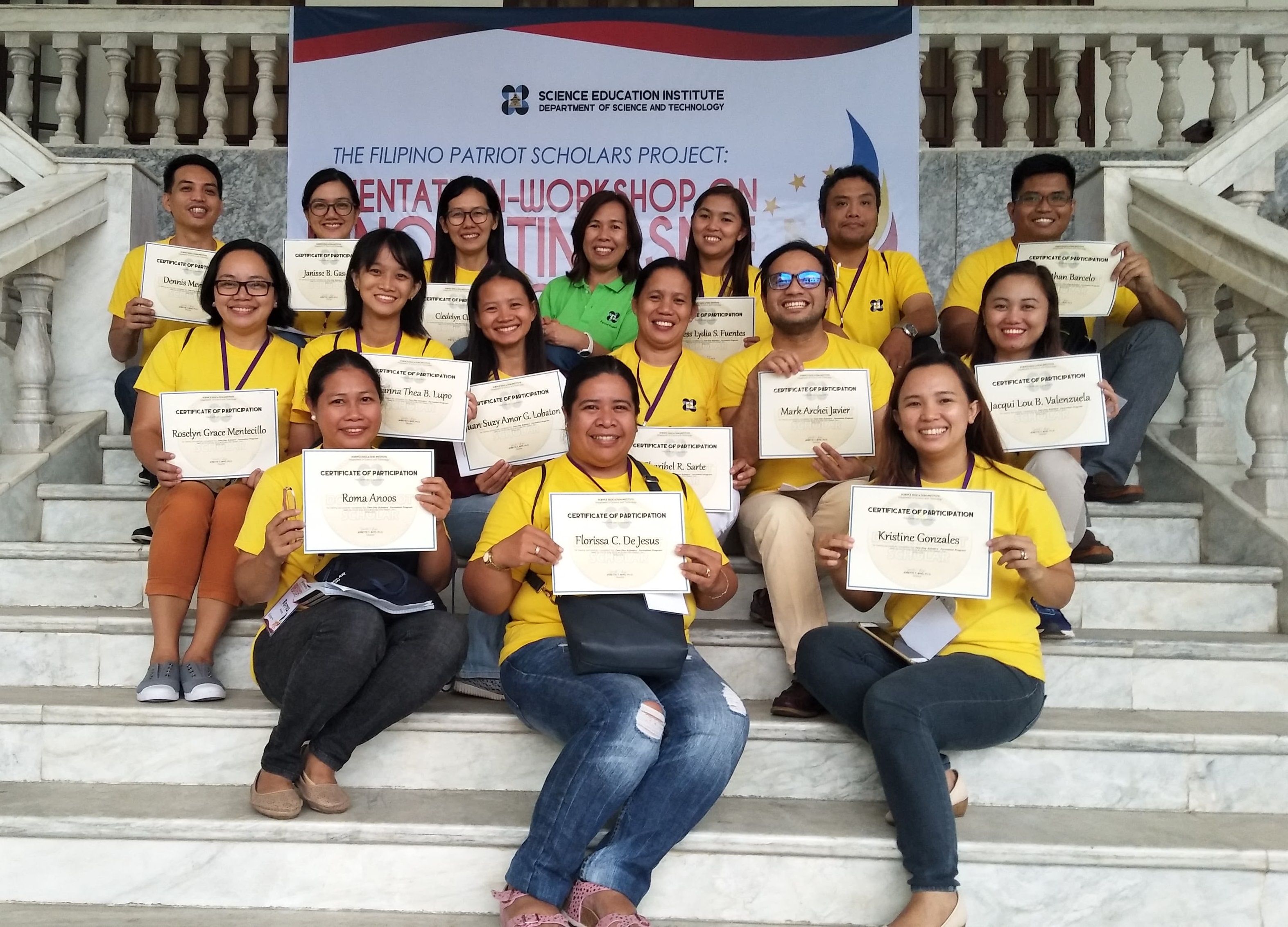On 12-13 July 2019 at Iloilo City, Iloilo, 16 PhD students of the University of the Philippines Open University Faculty of Education participated in the 2-day Scholars’ Formation Program of the Department of Science and Technology through the Science Education Institute (DOST-SEI).
In line with the DOST’s goals of instilling the core values of professional excellence, social responsibility and servant leadership through conducting lecture-fora across regions, this activity initiated through the “Filipino Patriot Scholars’ Project” aims to broaden the engagement of the DOST-SEI scholars in achieving inclusive democracy, inclusive development, and inclusive human security.
Rekindling the essence of patriotism
As part of the activities, the field immersions and Focus Group Discussions (FGDs) conducted by the scholars in the nearby communities of Iloilo City enabled them to be exposed to the problems experienced by the residents and at the same time explore its root causes. As Ms. Roselyn Grace Montecillo remarked, it is an “eye-opener to the realities of the society.” Ms. Janiss Gas-ib further added that “the encounter with the locals stimulated consciousness on the plight of others.
The scholars generally described the 2-day workshop as fulfilling for it strengthened their value for public service and love for the country. Ït rekindled the values of altruism and rediscovered the essence of being a Filipino”, Ms. Cledelyn Cuya remarked. The true essence of Filipino patriotism, as Ms. Florissa de Jesus emphasized, lies on having the perspective of considering others more than ourselves and serving the nation through every possible means.
The importance of return service was also emphasized during the workshop. As Ms. Jacqui Lou Valenzuela remarked, it serves as a successful avenue that will effectively ease away the negative impact of “return service” among Filipino scholars. The event targeted the dilemma of brain drain – a particular cancer among intellectuals and professionals in the country, she emphasized.
Love for the country, as commented by Ms. Cuya, must be coupled with action and sacrifice.” Likewise, loving the country is not enough, as Ms. De Jesus emphasized, taking part and contributing on its growth and the betterment of the whole citizenry is what matters.
Advocating public service
For some of the first-time participants, the remarkable highlights of the event include the workshop on formulating SME solutions to the community problems and the community immersion/exposure trip. Being open-minded and responsive to the needs of the community are their significant take-aways from these activities.
The perspective of creating meaningful and holistic projects through collaborative effort is further strengthened among the DOST scholars. “Collective effort for civic impact from the scholars nationwide would be more sustainable than an effort from an individual who maintains the same desire to contribute to the society”, Ms. Roma Anoos emphasized.
One step that Ms. Montecillo would undertake is incorporating the framework/strategy employed during the workshop to expose the students in addressing community problems. In this way, the students would be able to identify root causes, assess effects and suggest possible solutions. As educators, the scholars noted that it is vital to integrate into their teaching the concepts of discipline, obedience, love, service, duty, patriotism and volunteerism. In line to this, one of the future plans shared by Ms. Valenzuela is to conduct a research in their school that will help students develop certain characteristics such as loyalty to their alma mater, civic responsiveness, and respect for individual and cultural responsiveness.
Enhancing SME
To further ignite civic impact in the country, it could be more meaningful if teachers could create opportunities to translate the school-based literacies of science and mathematics education (SME) to solutions to real-life problems, Ms. Gas-ib recommended. Also, as suggested by Mr. Alwielland Bello, SME can be further improved through realigning STEM curriculum into sustainable development programs of the government.
Comprehensive trainings for science and math educators intended for the acquisition and reacquisition of science and math concepts, improvement of problem solving skills and pedagogy is much needed, Ms. Anoos noted. The scholars also agreed that providing the necessary tools and innovations to help students learn at their best is a contributing factor in order to utilize the SME in forwarding civic impact.
____________________________
The PhD students were under the Capacity Building Program in Science and Mathematics Education (CBPSME) of the DOST-SEI. The PhD program offered in UPOU has been a recipient of DOST-SEI’s scholarship program since 1995.
(CVMina)

